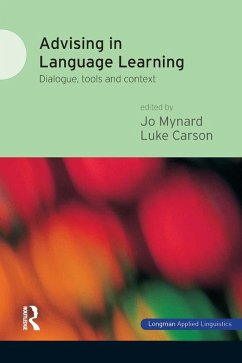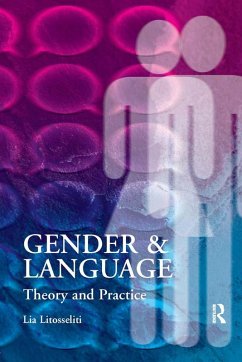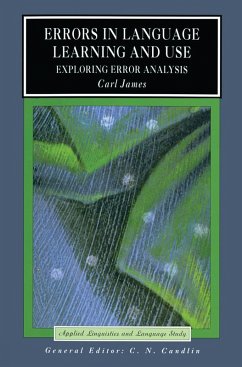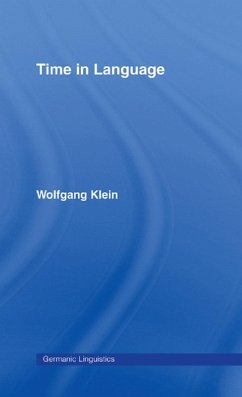
Grammar of Interactional Language (eBook, PDF)
Versandkostenfrei!
Sofort per Download lieferbar
62,95 €
inkl. MwSt.
Weitere Ausgaben:

PAYBACK Punkte
31 °P sammeln!
Traditional grammar and current theoretical approaches towards modelling grammatical knowledge ignore language in interaction: that is, words such as huh, eh, yup or yessssss. This groundbreaking book addresses this gap by providing the first in-depth overview of approaches towards interactional language across different frameworks and linguistic sub-disciplines. Based on the insights that emerge, a formal framework is developed to discover and compare language in interaction across different languages: the interactional spine hypothesis. Two case-studies are presented: confirmationals (such a...
Traditional grammar and current theoretical approaches towards modelling grammatical knowledge ignore language in interaction: that is, words such as huh, eh, yup or yessssss. This groundbreaking book addresses this gap by providing the first in-depth overview of approaches towards interactional language across different frameworks and linguistic sub-disciplines. Based on the insights that emerge, a formal framework is developed to discover and compare language in interaction across different languages: the interactional spine hypothesis. Two case-studies are presented: confirmationals (such as eh and huh) and response markers (such as yes and no), both of which show evidence for systematic grammatical knowledge. Assuming that language in interaction is regulated by grammatical knowledge sheds new light on old questions concerning the relation between language and thought and the relation between language and communication. It is essential reading for anyone interested in the relation between language, cognition and social interaction.
Dieser Download kann aus rechtlichen Gründen nur mit Rechnungsadresse in A, B, BG, CY, CZ, D, DK, EW, E, FIN, F, GR, HR, H, IRL, I, LT, L, LR, M, NL, PL, P, R, S, SLO, SK ausgeliefert werden.













